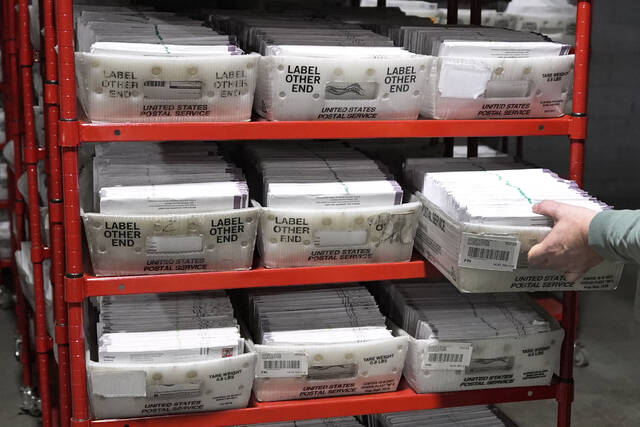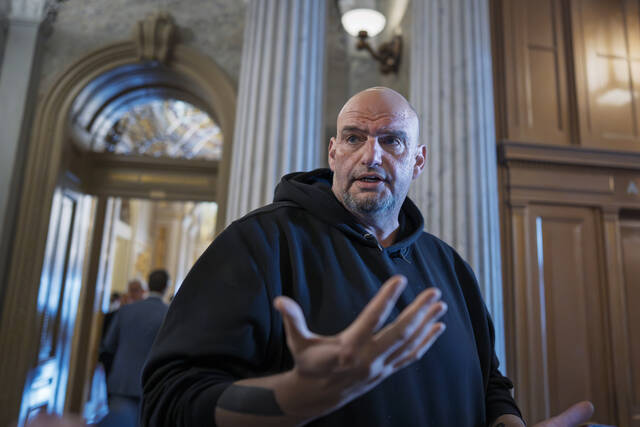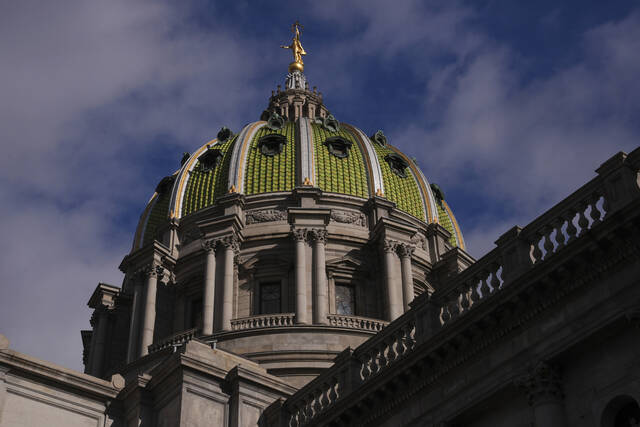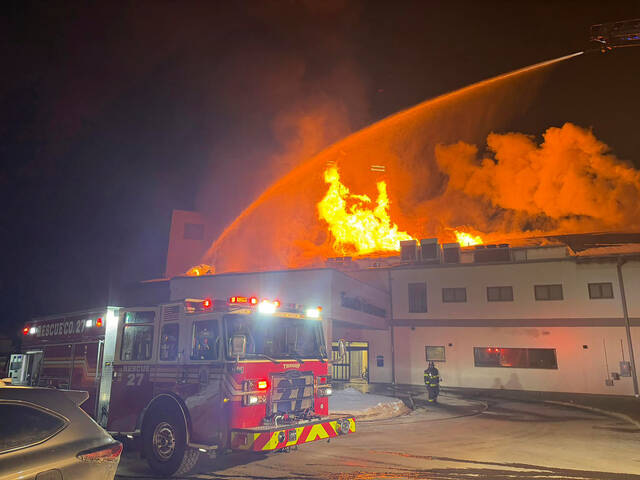The Pennsylvania Supreme Court dealt a blow Friday — at least temporarily — to Democrats and voting-rights groups on the critical issue of how to handle date errors on mail-in ballots.
But the decision, which threw out a lower court’s ruling that it is unconstitutional to discard ballots with date errors on the outer envelope, is likely not the last word.
The two-page opinion leaves the door open for the plaintiffs — including a number of voting rights organizations from Pittsburgh who want ballots counted despite date errors — to file new cases against all 67 county boards of elections.
They originally sued only the Pennsylvania Secretary of State and the boards of elections in Allegheny and Philadelphia counties.
Republicans argue that ballots with defective dates should not be counted because they don’t abide by the exact language of the state statute governing mail-in voting.
The decision comes during a pitched battle between Democrats and Republicans over mail-in ballots in Pennsylvania, where each party is clawing for any advantage it can find, and where every vote counts in the race for president.
At stake are potentially thousands of votes in an all-important swing state where Kamala Harris and Donald Trump are locked in a tight contest. With the candidates blitzing Pennsylvania, whose haul of 19 Electoral College votes could decide who sits in the Oval Office next year, the court’s ruling leaves unresolved a critical issue.
Ari Savitzky, a senior staff attorney with the American Civil Liberties Union Voting Rights Project, called the decision procedural and a “deeply unfortunate and unnecessary setback for voters.”
But a lawyer for the Democrats saw a bright spot in the court’s ruling.
“It is absolutely a technicality,” Cliff Levine, the attorney representing the Pennsylvania Democratic Party and the Democratic National Committee in the case, said of the Supreme Court’s decision. “They didn’t rule on the merits at all.”
Question of jurisdiction
The 4-3 decision said that, because all 67 counties’ boards of election were not named as defendants, the Commonwealth Court — an intermediate appeals court — did not have jurisdiction.
The legal gambit to include Secretary of State Al Schmidt as a defendant, the majority said, was not enough to remedy the error.
Three justices dissented, with Justice David N. Wecht writing, “A prompt and definitive ruling on the constitutional question presented in this appeal is of paramount public importance inasmuch as it will affect the counting of ballots in the upcoming general election.”
He went on to say that he would exercise the court’s King’s Bench authority to take the case, which allows the Supreme Court to take up any case in a lower court, or even one not pending in the courts “when it sees the need to address an issue of ‘immediate public importance,’” according to the Pennsylvania court system.
Wecht was joined in his dissent by Chief Justice Debra Todd and Justice Christine Donohue.
In a statement issued late Friday, Gov. Josh Shapiro said his administration will continue to fight against disenfranchisement.
“It’s unfortunate that the PA Supreme Court did not side with the voters of our commonwealth today,” he said. “It should be clear that voters who make an inconsequential dating error deserve to still have their valid vote counted.”
Election Day deadline
In the initial lawsuit filed in May, the voting rights organizations alleged that the failure of Allegheny and Philadelphia counties to count misdated or undated return envelopes in the 2022 election disenfranchised 10,000 voters.
They further argued that thousands more would be affected in November’s general election.
Their claims, citing the Pennsylvania Constitution, asserted that the dates required to be placed on voters’ envelopes serve no compelling governmental interest and therefore should not be used to disenfranchise voters.
Less than a month after both sides argued their positions, the Commonwealth Court issued a 91-page opinion. In it, the majority agreed that the date is irrelevant and not used to determine timeliness, a voter’s qualifications or whether there is fraud.
Therefore, not counting those ballots, they said, violated Pennsylvania’s free and equal elections clause.
Gaming the system?
The ruling was praised by the voting rights groups but immediately appealed by the Republican Party to the state Supreme Court.
A message left on Friday with the attorney representing the Republican National Committee was not immediately returned.
Matthew H. Haverstick, who represents Westmoreland County Commissioner Doug Chew in the case, called it the right decision.
“Hopefully outside groups will get the message and stop doing these collusive set-up lawsuits, and instead name parties who actually have an interest in a case,” he said. ”And perhaps next time the secretary will stand up for the constitutionality of state law.”
State Sen. Kim Ward, R-Hempfield, called Friday’s ruling a win — even if the court has not yet answered the question of whether to count the ballots.
“Petitioners’ attempt to game the system by naming only counties and state officials sympathetic to their legal position was soundly rejected,” she said. “While this may not be the end of this issue, this decision ensures that all interested and necessary parties will be heard if and when this issue again comes before the court.”
Steve Loney, the lead attorney on the case for the ACLU of Pennsylvania, said that the plaintiffs will work over the next few days to determine what route they will take to get back to the state Supreme Court with all 67 counties named.
They sued only Allegheny and Philadelphia counties, he said, because that’s where their clients are located and where the most impacted voters are.
“It was a matter of efficiency and focusing on the counties where our clients do their work,” Loney said.
Loney believes it’s possible that the majority of the state Supreme Court thought that taking the route they did Friday will, ultimately, make their decision cleaner.
“If their goal is to decide this once and for all and leave no ambiguity, they might want to do that in a case where all 67 counties are included,” Loney said.
Levine, the Democrats’ lawyer, said that whatever steps the plaintiffs take, they will be expedited — either through the lower courts, or by asking the state Supreme Court to exercise its King’s Bench authority.
There is still adequate time to get the issue resolved before the election, he said.
“You can’t spend the next year fighting this,” Levine said. “Everybody knows we have to resolve this by Nov. 5.”
Editor’s note: Attorney Matthew Haverstick represented Westmoreland County Commissioner Doug Chew in the case. The original story listed the wrong client.








